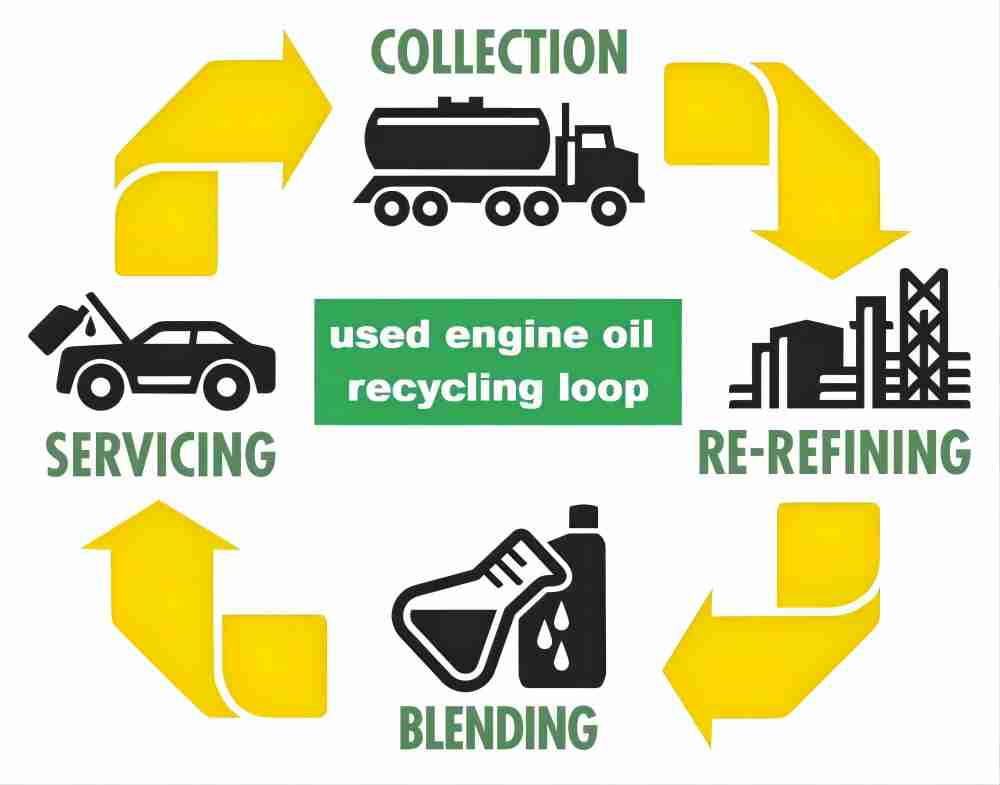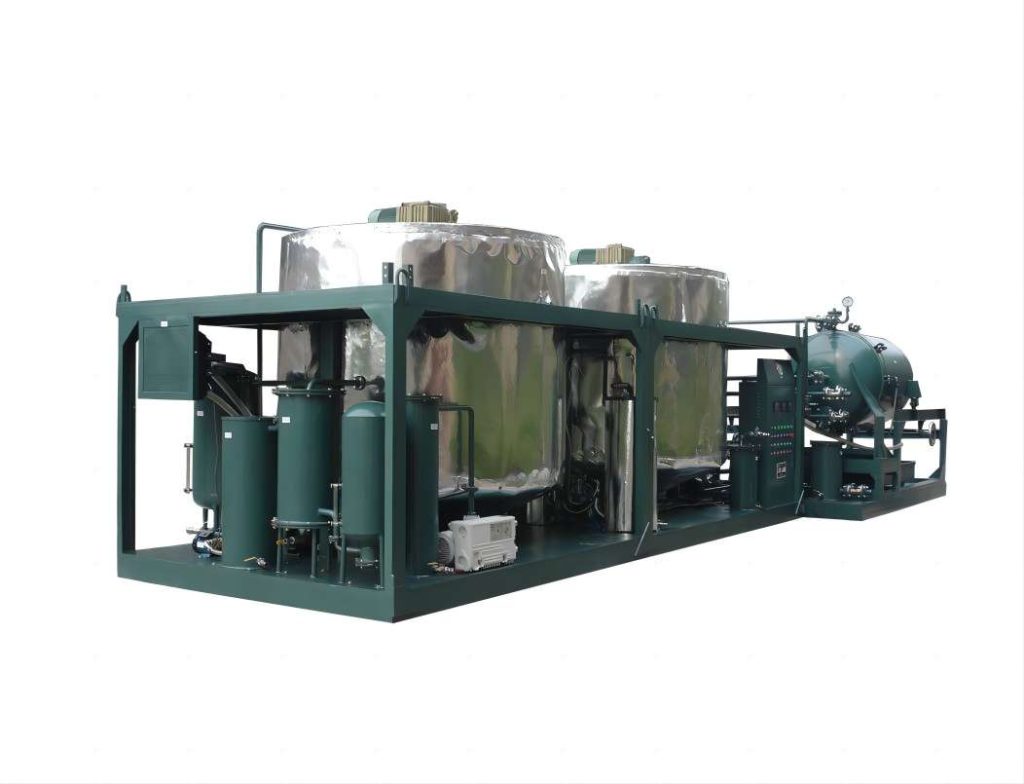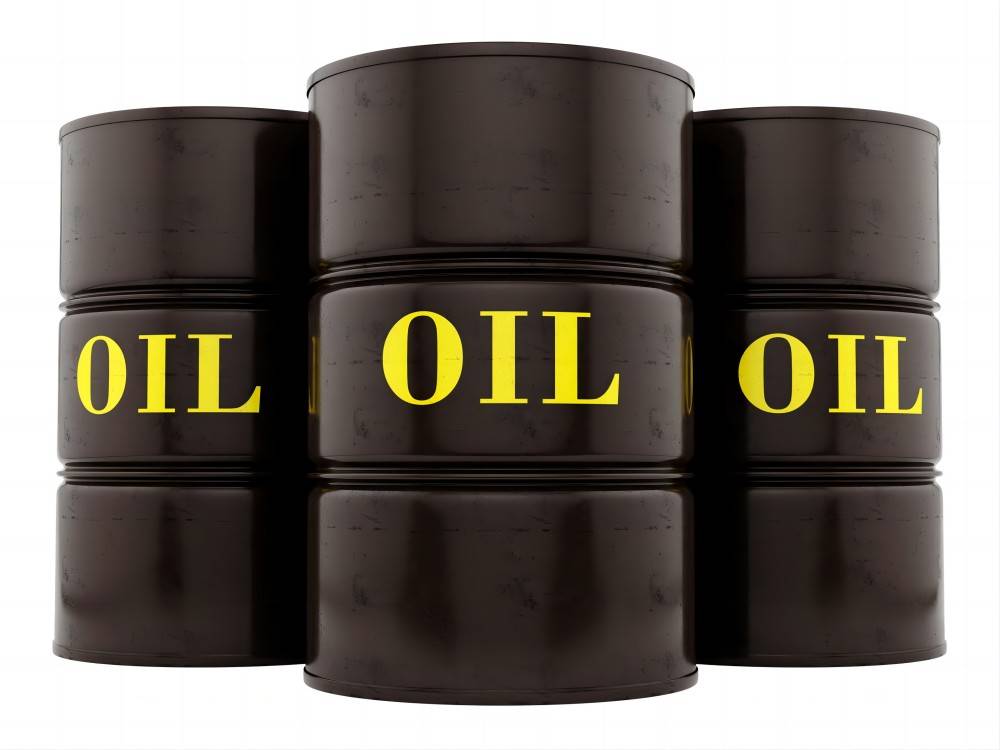Used Engine Oil Recycling: Challenges and Opportunities
With the acceleration of industrialization, the amount of used engine oil generated is increasing year by year, and used engine oil recycling has become a pressing issue. Waste oil recycling is not only related to environmental protection but also closely related to resource utilization and economic development. This article will deeply discuss the common challenges in recycling waste engine oil and propose corresponding solutions.

Technical Challenges
Technology is the core of waste engine oil recycling and utilization. At present, the main technical challenges faced by waste engine oil recovery include the following aspects:
- Separation efficiency: Waste engine oil contains a large amount of impurities and water. How to quickly and effectively separate them is a major technical challenge. Traditional separation methods often have low efficiency and cannot meet the needs of modern industry.
- Harmless treatment: Waste engine oil contains harmful substances such as heavy metals and benzene. If discharged directly without proper treatment, it will cause serious environmental pollution. Therefore, developing efficient and harmless treatment technologies is an urgent problem to be solved.
- Recycling technology: How to recycle used engine oil and produce lubricating oil or diesel that meets standards is one of the key research directions of waste oil recovery technology. At present, recycling technology is still in the stage of continuous exploration and improvement.
In response to the aforementioned technical challenges, we can take the following measures:
- Increase R&D investment: Encourage and support research institutions and enterprises to carry out research and development of used engine oil recycling technology, and promote technological progress and innovation.
- Introduction of advanced technology: Actively introduce advanced waste motor oil recovery technologies from both domestic and international sources, and make modifications and optimizations based on actual situations.
- Strengthen cooperation between schools, enterprises, and research institutions: Promote close cooperation between schools, enterprises, and research institutions to overcome technical difficulties in used engine oil recycling and utilization jointly.
Management Challenges
Used engine oil recycling involves the management of multiple links such as collection, transportation, and treatment. The management challenges cannot be ignored:
- Incomplete collection system: Currently, the waste engine oil collection system is not yet complete, resulting in scattered sources of waste oil and difficulties in centralized processing. This not only increases processing costs but may also lead to illegal disposal of waste oil.
- High transportation cost: The transportation cost of waste oil is high, especially in remote areas. Due to inconvenient transportation, it is difficult to collect and transport waste oil, which increases the difficulty and cost of recycling.
- Difficulty in regulation: The regulation of the used engine oil recycling industry is difficult. Due to the involvement of multiple departments and stakeholders, it is difficult to form a unified and effective supervision mechanism. This provides opportunities for illegal disposal such as theft and emissions.
In response to the above management challenges, we can take the following measures:
- Improve the collection system: Establish a sound waste engine oil collection system, encourage and support all sectors of society to participate in waste oil recycling work, and form a diversified recycling network.
- Strengthen transportation management: optimize transportation routes and methods, and reduce transportation costs. At the same time, strengthen the supervision of the transportation process to ensure the safe and compliant transportation of waste engine oil to the processing site.
- Strengthen supervision: Strengthen the supervision of the used engine oil recycling industry, establish a sound legal regulatory system, and crack down severely on illegal disposal, theft, and emissions.

Market Challenges
The competition in the used engine oil recycling market is becoming increasingly fierce, and facing multiple challenges:
- Price fluctuations: The price of recycled engine oil is influenced by various factors such as international market supply and demand, crude oil prices, etc., resulting in significant price fluctuations. This increases the operational risk of used engine oil recycling enterprises and compresses their profit margins.
- Competitive pressure: With the opening up of the used engine oil recycling market and the intensification of competition, more and more enterprises are entering this field, and market competition is becoming increasingly fierce. How to stand out in competition is a problem that every waste oil recycling enterprise needs to face.
- Technological innovation: With the continuous progress of science and technology, waste oil recovery technology is also constantly innovating. Enterprises need to continuously invest in research and development, master advanced technologies and processes, improve recycling efficiency, and reduce costs.
In response to the above market challenges, we can take the following measures:
- Strengthen industrial cooperation: Encourage waste oil recycling enterprises to strengthen cooperation, jointly respond to market challenges, and form an industrial cluster effect.
- Improve service quality: By providing high-quality services, win the trust and support of customers, and enhance market competitiveness.
- Strengthen technological innovation: Increase investment in technological research and development, continuously improve the level of waste oil recovery technology, reduce costs, and improve recovery efficiency.
Environmental Challenges
The environmental issue of used engine oil recycling is also an important challenge:
- Environmental pollution: Improper and illegal disposal of used engine oil can cause serious pollution to soil, water resources, and the atmosphere. How to effectively control the environmental pollution caused by waste oil is an urgent problem to be solved.
- Resource waste: Used oil contains a large amount of valuable components. If not utilized reasonably, it will result in a significant waste of resources. How to achieve efficient resource utilization of waste oil is an important environmental challenge.
- Climate change: The process of recycling used engine oil may involve greenhouse gas emissions, exacerbating global climate change. How to reduce carbon emissions during waste oil recovery is an important environmental issue.
In response to the aforementioned environmental challenges, we can take the following measures:
- Strengthen environmental protection publicity activities: raise public awareness of environmental protection, and let more people understand the importance and environmental significance of waste oil recycling and utilization.
- Improve environmental regulations: Develop stricter environmental regulations and standards to regulate the environmental behavior of the waste oil recycling industry.
- Promote environmental protection technology: Encourage and support the research and development of environmentally friendly waste oil recycling and utilization technologies and equipment, and improve the environmental performance of waste oil treatment.

Conclusion
The waste oil recycling industry faces challenges in technology, management, market, environment, and other aspects. Overcoming these challenges requires the joint efforts of the government, enterprises, research institutions, and all sectors of society. By strengthening technological innovation, improving management systems, expanding markets, and enhancing environmental awareness, we aim to promote the healthy development of the waste oil recycling industry and make positive contributions to achieving sustainable development goals.







